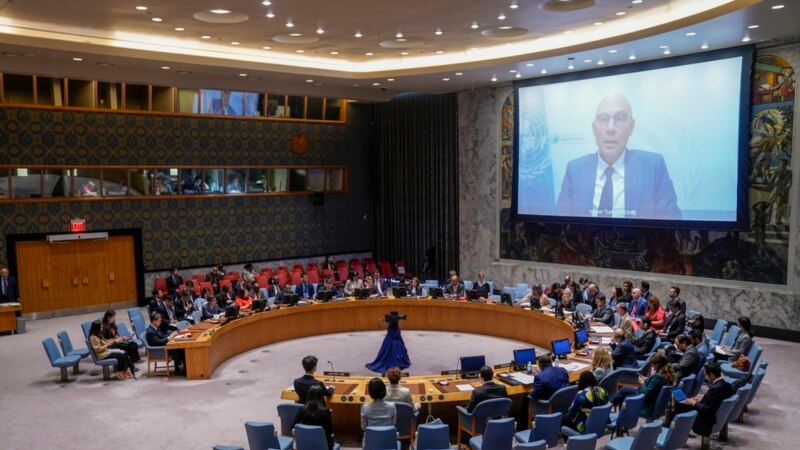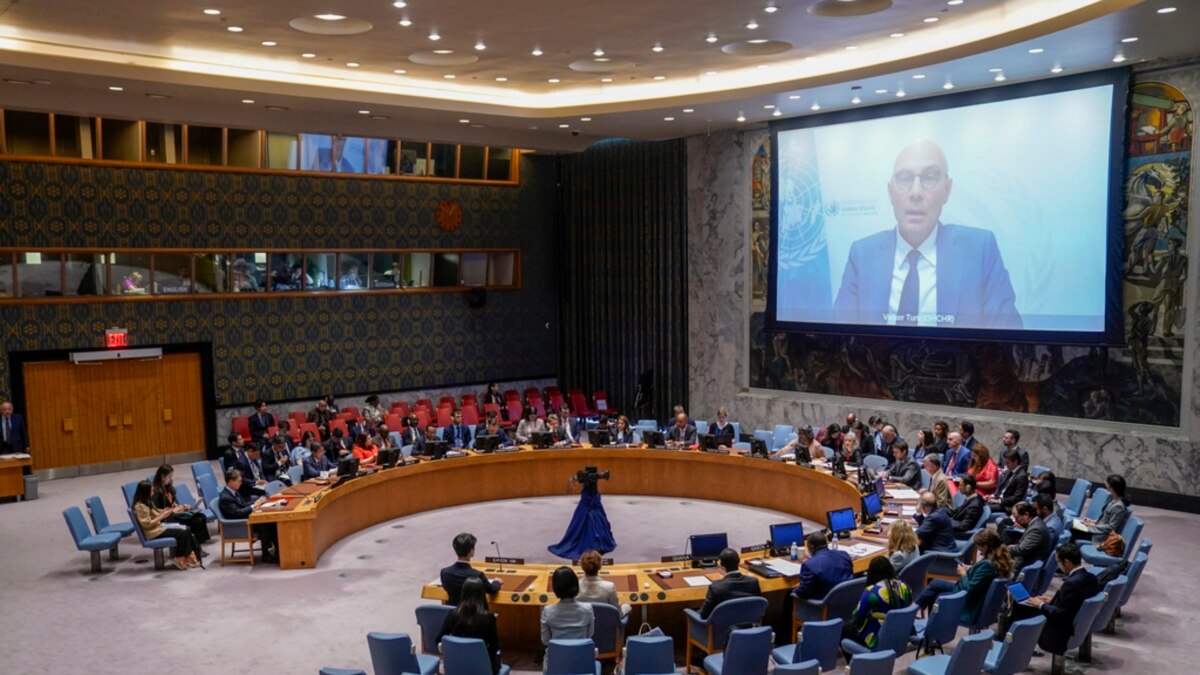This website uses cookies so that we can provide you with the best user experience possible. Cookie information is stored in your browser and performs functions such as recognising you when you return to our website and helping our team to understand which sections of the website you find most interesting and useful.


Editor's note: Here is a fast take on what the international community has been up to this past week, as seen from the United Nations perch.
Security Council discusses DPRK human rights
The U.N. human rights chief said Thursday that many of the severe and widespread rights violations in North Korea are directly linked to the regime’s pursuit of nuclear and ballistic missile technology. Volker Türk told a special meeting of the Security Council on human rights in North Korea that the use of forced labor and confiscation of wages from overseas workers “all support the military apparatus of the state and its ability to build weapons.”
Secretary-general proposes options for Haiti multinational force
U.N. Secretary-General Antonio Guterres is calling on the international community to “act now” and deploy a robust non-U.N. armed force to Haiti to support the national police in stopping the gang violence that is overwhelming the island nation. In a report to the Security Council, the secretary-general said the current situation is not conducive to a U.N. peacekeeping mission, and he offered two options for the United Nations to support a multinational force. The first would provide logistical support for the multinational force and the Haitian national police. The second option would be strengthening the U.N. special political mission in Haiti, known by its acronym BINUH, to expand its current support to the Haitian police.
Education envoy urges ICC to prosecute Taliban for gender discrimination
U.N. Special Envoy for Global Education Gordon Brown said Tuesday that the International Criminal Court should investigate and pursue charges against the Taliban for their denial of basic rights to Afghan women and girls. He told reporters that denying Afghan girls an education and women the right to work is gender discrimination, which should rise to the level of a crime against humanity and be prosecuted by The Hague-based tribunal.
U.N. and NGO leaders call for immediate cease-fire and ‘reset’ in Sudan
As the fighting in Sudan entered its fifth month this week, the heads of U.N. agencies and several NGO leaders issued a joint statement appealing to the parties to end the war. They said that the situation is spiraling out of control and that millions of Sudanese, including 6 million on the verge of famine, are paying the price.
In brief
— U.N. West Africa envoy Leonardo Santos Simão is due to arrive Friday in the capital of Niger. He is expected to meet with the military leaders behind the July 26 coup against President Mohamed Bazoum. A U.N. spokesperson said the envoy remains in contact with member states of the West African regional bloc ECOWAS, stakeholders in Niger and other concerned parties in order to facilitate a swift and peaceful resolution to the crisis.
— U.N. humanitarian chief Martin Griffiths made a three-day visit to Myanmar this week, where he met with Senior Gen. Min Aung Hlaing. Griffiths called for expanded humanitarian access and increased funding to assist 18 million people in need of assistance across the country. U.N. aid operations are only 22% funded eight months into the year. Nearly 2 million people are displaced inside Myanmar. Griffiths traveled to Rakhine State, which is still coping with the impact from cyclone Mocha three months ago.
— The U.N. children’s agency says Congo is facing its worst cholera outbreak since 2017 with more than 31,000 suspected or confirmed cases. At least 230 deaths were recorded from January to July, many of them children. UNICEF says North Kivu is the most affected province. With more than 6.3 million people displaced across the country, many in overcrowded camps without sufficient clean water, humanitarians worry about it being fertile ground for the disease to spread. UNICEF is appealing for $62.5 million to scale up its prevention and response activities over the next five months. Ethiopia is also dealing with a large cholera outbreak in the Oromia, Sidama, SNNP and Somali regions, where more than 16,800 cases have been reported, including 212 cholera-related deaths.
Did you know?
The General Assembly designated Aug. 19 as World Humanitarian Day to honor the work and sacrifice of humanitarians. The date is in memory of the 22 U.N. staffers who were killed on that day in 2003 when their Baghdad compound was struck in a suicide truck bomb attack. This year’s theme is the importance, effectiveness and positive impact of humanitarian work. Aid workers carry out their duties in complex and often dangerous environments. So far this year, 62 humanitarian workers have been killed, 84 wounded and 34 kidnapped.



 Africana55 Radio
Africana55 Radio 
